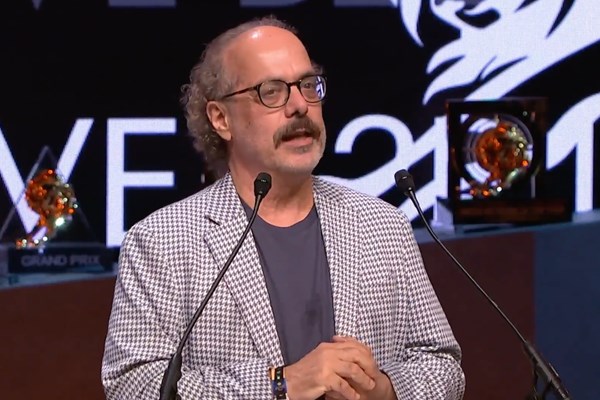Traveling to and from B2B Ignite in London, where I had the opportunity to present our new Digital Marketing Transformation Framework with my colleague and close collaborator, Marc Keating, Chief Innovation Officer at Stein IAS, I read two pieces that together gave me pause. The more I think about them, the more important the takeaways seem to me.
They also align with many other discussions I’ve had across the B2B marketing universe and with the agendas of conferences I’ve attended: a very important pendulum is clearly swinging.
The first piece was published on July 10 by WARC. It reports on Forrester analysis that was the subject of a keynote session at Cannes by principal analyst Jay Pattisall. Forrester calls for marketers to move $19 billion out of technology and into creativity over the next six years as part of a growth plan.
The report states that “CMOs face a creative rut while overspending on technology” and that CMOs are hurting the value of their brands by delivering digital customer experiences that “all look and feel the same.” It goes on to say that marketers are under-investing by cutting agency fees and working dollars, and seeking the efficiencies of in-housing, in order to re-channel budgets to gaping maw of technology with adverse effect.
I agree. But Forrester only has this partly right. The lean to martech and adtech (along with the $52 billion that WARC says is being poured into them this year in the US and UK alone) certainly strains resources available for creativity, CX and brand building. Clearly, that’s a problem.
But the problem that’s just as big or even bigger is that, along with not getting the creative, CX and tech balance right, marketers are screwing up their tech investments royally. They are making huge investments with too-limited value realization.
The second piece I read was posted by Denise Lee Yohn on Forbes. (Denise is an author, speaker and Forbes CMO Network contributor.) In her post, Denise writes: “It’s time to reclaim marketing as a key driver of business.”
Among the several excellent points Denise makes, one is that our disrupted world is now “awash in innovative products, services, technologies, solutions, business models, etc.” As such, “innovation alone can’t sustain a company; it must be paired with marketing.”
Paradoxically, the same holds true for commoditized offerings and categories where true differentiation is tissue thin. Marginally better (or worse) products can only win through the “powerful potential of marketing.”
Tying these two pieces together, my takeaway is this:
- First, marketers need to get back to the business of creativity – from brand to demand to extraordinary content experiences to anything and everything that touches their people, partners and end-user audiences. This requires sustained investment, the resolve to stand behind the need for it, and the creative resources to do it.
- Second, marketers need to grab their martech investments by the scruff of the neck and make them work better and harder. Twenty-five years since the first banner ad ran, we have reached the end of the beginning of digital marketing. We are now entering a period of wholesale digital marketing transformation. If you don’t agree, read this survey of 450 B2B marketing decision makers because 81% of your peers agree big time.
- Marketers need to do both these things in balance, not one or the other, to remain relevant let alone assume a seat at the fabled table. And, they need to remember that marketing is about more than communications, more than customer acquisition, more than customer retention, more than sales enablement. It its fullest value, marketing is about (pulling again from Denise’s post) creating, communicating, delivering and exchanging offerings that have value for customers, clients, partners and society at large.
If marketing and marketers want to be, as Denise wrote, “valued as a driver of business viability and growth,” then we as an industry need to make marketing matter more.
That’s a noble and necessary ambition. I believe the marketing pendulum has started its swing in that direction. Do you?



